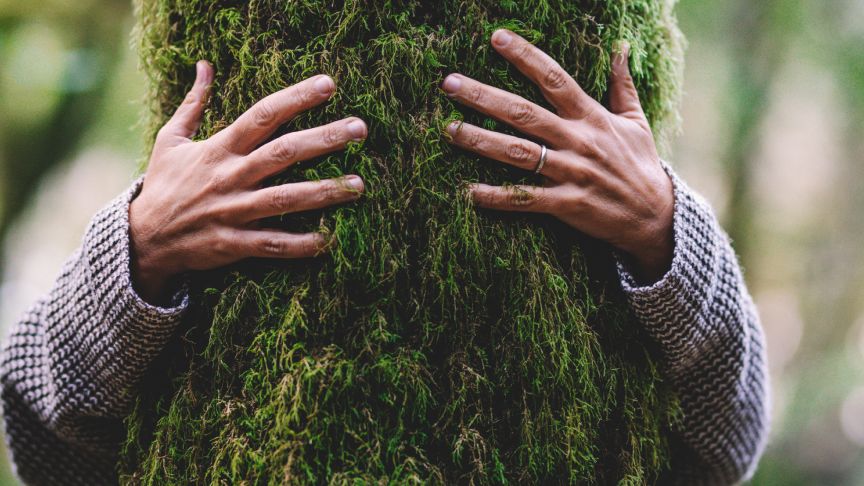
The Prophet pbuh said: “Whoever says: ‘Glory is to Allah, the Magnificent, and with His Praise (Subhan Allahil-Azim, Wa Bihamdih)’ a date-palm tree is planted for him in Paradise.” Narrated from Jabir.
I was stationary in traffic at the bottom of Squire Lane. On my left was the Girls’ Grammar School where I dropped off and picked up my daughter for 15 years. In front of me the Bradford Royal Infirmary. A little before sunset and on the coldest day of the year so far. A clear day though the frost had turned everything white. And suddenly appeared before me the trees! On both sides, almost exact in size and shape, with not a single leaf. They appeared like glass sculptures. They appeared in perfect symmetry. Majestically reaching up to the sky. They appeared, awe inspiring. But what struck me most was that until that day the trees had never appeared at all. If, before this day, I had been asked the question “Are there trees on Squire Lane?” my answer would have been, “I don’t know.”
Remembering the verse in the Quran where Allah tells us that all of nature is in constant worship of Him, I was mesmerised by the picture in front of me. The trees in worship!
At home I looked at the very tall trees in my garden. A high green wall that has often borne the brunt of my annoyance as it blocks out the sunlight. That day I saw them differently. To face Makkah, I face directly towards the trees. We prayed Maghreb together that day, the trees and I. All praise is for Allah…
In the Quran the word ‘tree’ is mentioned 27 times in 26 verses. 56 times in the Bible. The Jewish Book Of Proverbs of Solomon (Hebrew Bible) uses the Tree of Life as a metaphor for the Torah. Whether it be the Bodhi tree under which Buddha gained enlightenment, the Neem tree under which Krishna played his mystical flute or the Ashoka tree that protected the chastity of Ram’s wife Sita from her abducter Ravan, trees have a prominent place in all faiths.
From the tree forbidden to Adam and the tree from which Allah spoke to Musa, the Tuba tree from which the clothes of the people of paradise will be made and the Fig and the Olive by which Allah swears on Surah At-Tin, He places trees amongst His notable creations.
For Muslims, the trees are a reflection of the garden of our origin, which is the garden to which we all hope to return.
Anas ibn Malik reported the Messenger of Allah saying: “There is none amongst the Muslims who plants a tree or sows seeds, and then a bird, or a person or an animal eats from it, but it is regarded as a charitable gift for him” and “Even if the Resurrection were established upon one of you while he has in his hand a sapling, let him plant it.”
Sadly, often, we reap more than we sow and we uproot more than we plant.
When describing his ascent into Heaven, the Prophet pbuh tells of how Jibreel took him up into the seventh heaven: “Then I was taken to Sidrat al-Muntaha (‘the Lote Tree of the Farthest Boundary’); its fruits were like the pitchers of Hajar and its leaves were like the ears of elephants. (Reported by al-Bukhaari, 3598).
Al-Nawawi said: “It is called Sidrat al-Muntaha because the knowledge of every Prophet sent and every angel stops at that point, and no one has gone beyond it except the Messenger of Allah pbuh.”
Back on earth, we know that the trees are effectively the lungs of the planet. Lungs that are suffering from fibrosis as the pollution increases and deforestation continues. With fewer and fewer trees to share the burden of our poisonous output. We know the importance of trees in the balance of the ecosystem, in generating oxygen, promoting biodiversity, preventing soil erosion etc. Trees for medicines: the analgesic qualities of bark of the willow tree; the antioxidant properties of the Neem tree and the antibacterial and anti fungal properties of the Eucalyptus tree to name but a few.
Many studies have concluded that trees communicate with each other through their intricate network of roots. Some studies talk of trees feeling pain whilst others have talked about the disruption the falling of a single tree can bring to the delicate balance of nature.
When great trees fall,
rocks on distant hills shudder,
Lions hunker down
in tall grasses,
and even elephants
Lumber for safety.
From Maya Angelou’s “When Great Trees Fall”
We are directed to nature for therapy and wellbeing by the professionals trying to grapple with the onslaught of mental health issues. Trees and their refreshing colours have a positive effect on human mental health. In an often cold, concrete world, their blossoms and colouration provide a sense of peace and represent life. If we only took out the time to pause and reflect on the beauty of their stature, the complexity of their lifecycle and the blessings they bestow upon all living things. Gratitude is a good healer.
As I lie in my bed, the trees sway in the breeze, whispering a gentle motherly lullaby to the owl and her baby. When winds are strong, they swoosh, making the sounds of the sea. Sometimes they’re still like a picture, in contemplation.
As I stand, small amongst these majestic giants and take a deep breath, I’m filled with gratitude for the mercy of my Lord, and am in awe of His creation. I face the trees, facing the holy Kaba, at dawn and dusk and in the dark of the night, I pray to my Lord in congregation with the trees. I often find myself saying salaam to the trees in the hope that one day, maybe one day I may hear them reply “Wa alaykum salaam.”
By Tanu Bashir


